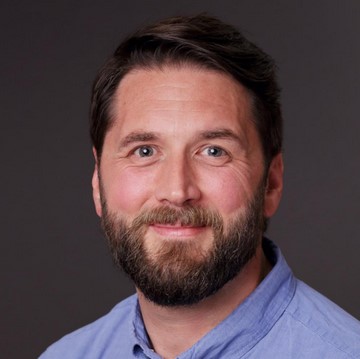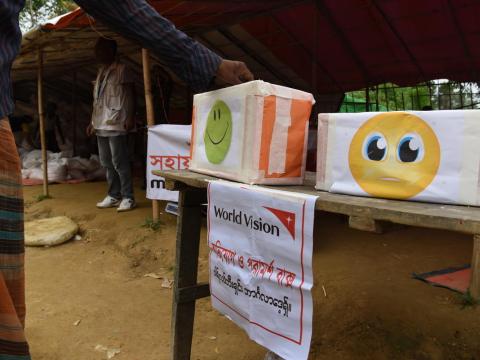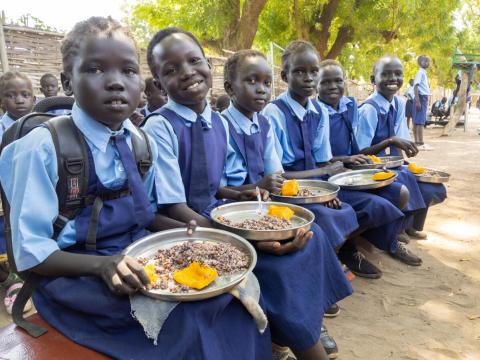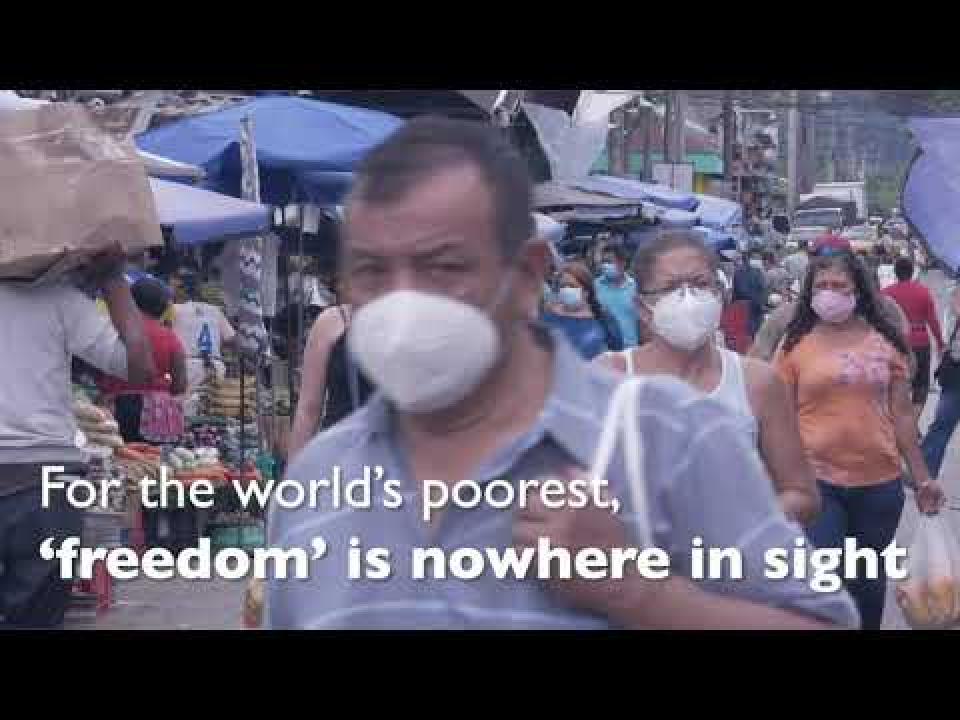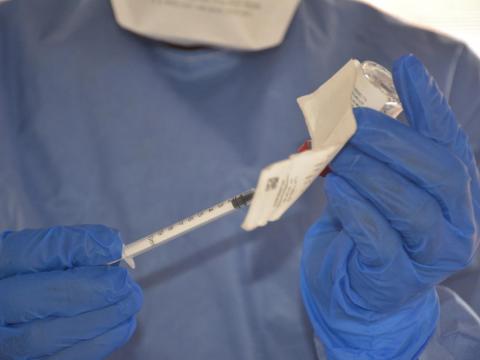
I can’t stop shouting about vaccines
By Maurice Sadlier
I’ve found myself shouting at the radio a bit lately. It could be because I miss being able to talk about things with my colleagues, face to face in an office. But it’s more likely because there is so much developed countries have to learn about vaccines from developing countries, yet we aren’t hearing this.
Last week, one commentator, reflecting on the exciting news about significant progress on a COVID-19 vaccine, added a word of caution about the two-dose vaccine being “difficult to administer in developing countries”. “It’s not! We have been doing two-dose vaccines for years! Let me tell you about EBODAC,” I responded. Oddly enough, she did not ask me to explain further. Allow me to do so here.
For the last six years World Vision, led by our teams in Sierra Leone and Ireland and more recently in Rwanda and the Democratic Republic of Congo (DRC), have been part of a consortium supporting Ebola vaccine clinical trials and vaccination campaigns. The vaccine, Janssen’s Preventive Ebola Vaccine, which was earlier this year granted Marketing Authorisation by the European Commission, is a two-dose regimen. It has been administered to almost 84,000 people in Sierra Leone, Rwanda and DRC as part of clinical trials or mass vaccination campaigns. This feels particularly significant in a week when DRC declared an end to the Ebola outbreak it has been battling for three years.
The Ebola Vaccine Deployment, Acceptance and Compliance (EBODAC) Consortium has brought together private sector, academic and NGO partners to develop strategies and tools to ensure the right vaccines get to the right people at the right time, and that people trust them and the process. I am immensely proud of our achievements with our partners the London School of Hygiene & Tropical Medicine, Janssen Pharmaceutical, N.V., and Grameen Foundation, and I want to shout from the rooftops about what we have learned. Because it is incredibly relevant for the challenges that lie ahead for COVID-19 vaccine programmes in any country.
It comes down to the 3Cs: Communication, Community Engagement and Compliance Management (more information below). We feel so strongly about the 3Cs we have developed a Gap Analysis Tool so countries can assess their country’s preparedness to deploy and accept a new vaccine. We know that when a country decides to deploy a new vaccine, exceptional levels of community-level preparedness are key to ensuring its success. This is going to be essential for any COVID-19 vaccine – despite the massive disruptions to our daily lives, a recent survey of Irish people found that only 55% would take COVID-19 vaccine.
I need to confess that in reality, there are four Cs, which is going to be particularly important when deploying any COVID-19 vaccine – Collaboration. One of the reasons for the success of EBODAC was the effective collaboration between private sector, academia, government and civil society towards a common goal. The collaboration required is not just among sectors but also between disciplines; we included social scientists, technology experts, social media specialists, anthropologists, public health experts, and information technology experts, to name but a few. Vaccine deployment is a complex business and cannot be left to one sector alone.
From the beginning of this pandemic, we have all seen many cases where poor Communications has led to confusion and concern hampering progress. Clear and effective communication was not only necessary internally for the success of the EBODAC Consortium but also key in achieving progress of the clinical trials. Here’s how we did it:
- We drew up strategies that ensured those who needed information received it in the correct format and at the right time.
- We established a team of Community Liaison facilitators to address rumours and misinformation surrounding Ebola and Ebola vaccines.
- Community Health Workers were central to our plans, so we developed a mobile training platform, which included interactive training modules in line with the national health curriculum, to provide refresher training on vaccines and emergency response practices. We are currently utilising this platform to deliver COVID-19 related training to Community Health Workers in Sierra Leone.
We followed three key principles in our Community Engagement work – reciprocity, dialogue and respect. I recently moderated a panel discussion on trust and community engagement bringing together experts across the project and it was an enlightening discussion. We learned:
- Understanding the local community is essential and is enhanced by staff being from the area.
- Involving local leaders, including traditional chiefs, is key to successful and continuous feedback loops with the community at all stages.
- Community Health Workers are at the forefront; on my last trip to our vaccine sites in DRC, World Vision-supported Community Health Workers had helped more than double the number of people receiving vaccines every day.
I must admit the recipient of my radio shouting was not wrong: Compliance Management is a challenge with any vaccine programme and particularly a two-dose one. But it is certainly not an insurmountable one, as we have seen. We have developed innovative technology approaches to support compliance. In Sierra Leone and Rwanda, we used a unique biometric kit that scans the eyes of volunteers, so that participants can be easily identified throughout the trial period and identified during their clinic visits, with careful controls to ensure their identifying data is protected. This, importantly, reduced physical contact, cut waiting times, paperwork and the amount expected from those involved, which encourages their compliance. In addition, we used a digital communication platform that sent simple reminders to trial participants who were due to receive the second dose of the prime-boost vaccine regimen or attend scheduled clinic visits.
Unlike Ebola, COVID-19 is a new pandemic and we are still learning about it so while a vaccine will be a major step, people in all contexts are unlikely to be passive recipients of a vaccine. Ensuring communities receive accurate and timely information will be key to success. As you can tell, I am confident that we have the skills and the knowledge to support the roll out of any future COVID-19 vaccine. What we need now is the political will to ensure there is a fair and equitable roll out of any COVID-19 vaccines. More about that next time…
Maurice is Programmes Director at World Vision Ireland. Follow Maurice on Twitter @MauriceSadlier
